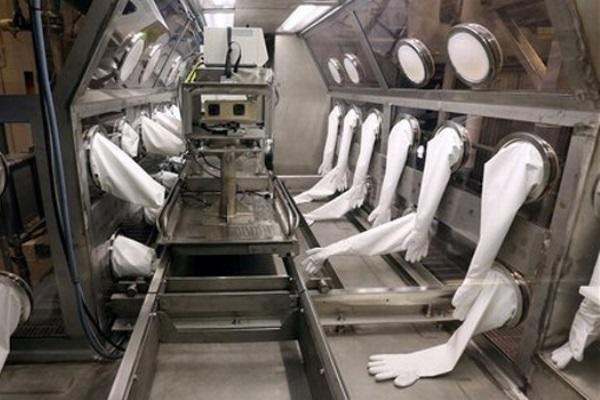The Army was wrapping up an investigation into the anthrax scandal focusing on the Dugway Proving Grounds site in Utah even as new questions emerged on the extent of live shipments of the deadly toxin nationwide and around the world.
Pentagon officials said that conclusions of the Article 15-6 fact-finding investigation under Army regulations could be released soon, possibly later this week.
The results could lead to disciplinary action against those responsible for the mistaken shipments, many by Federal Express, of live anthrax spores to 184 labs and contractors in all 50 states and at least nine foreign countries, plus the U.S. Virgin Islands, Guam and Puerto Rico. The number of shipments of live toxins totaled 575, according to the Centers for Disease Control and Prevention (CDC) in Atlanta.
"It's just unimaginable" that Dugway and DOD for more than 10 years was sending the "seed stock for a biological weapon to hundreds of entities" around the nation and the world without adequate safeguards, said Dr. Richard Ebright, head of the Waksman Institute of Microbiology at Rutgers University.
Many of the shipments went to private contractors and corporations seeking to develop testing mechanisms and vaccines that could then be sold to DOD. "This underscores what a boondoggle the entire system has become," said Ebright, who has testified before Congress on the issue.
Last May, when reports on the inadvertent shipments began to emerge, Defense Secretary Ashton Carter pledged to hold accountable those responsible. He also issued an apology to South Korea for the Army's testing of what proved to be live anthrax at the Osan Air Force Base without the knowledge of the Seoul government.
Last month, a joint South Korea-U.S. working group charged that U.S. Forces-Korea imported anthrax samples for tests at the Yongsan garrison in central Seoul 15 times between 2009 and 2014, apparently contradicting previous U.S. claims that the shipment to Osan was a one-off mistake.
However, the Pentagon said that South Korea was told at the time of the Osan disclosure that biological testing had been going on in South Korea since 2009.
The Article 15-6 investigation was one of three that began after Deputy Defense Secretary Robert Work ordered a review of how DOD handles biological agents. Work's action followed the report last May from a lab in Maryland, which found live spores in an anthrax sample from Dugway that supposedly had been irradiated and was inert.
Operations at the West Desert Test Center at Dugway were the subject of the Article 15-6 investigation. The office of the Secretary of the Army and the CDC were conducting separate investigations of the DOD's system for handling deadly toxins, said Marine Maj. Adrian j. Rankine-Galloway, a Pentagon spokesman.
The problem areas were not limited to the shipment and testing of anthrax. In September, the CDC investigation disclosed that DOD's Edgewood Chemical and Biological Center in Maryland had mishandled potentially live plague samples.
The CDC said that it found a sample of plague in a facility freezer at Edgewood "outside the containment area," Pentagon Press Secretary Peter Cook said. The CDC also raised concerns about Edgewood's handling of a strain of equine encephalitis.
"There was no rational basis for the shipment of these materials," Ebright said of the distribution by DOD of anthrax samples. He said a simulant could have been used rather than live or inert anthrax samples for the testing DOD wanted to be conducted.
As for the investigations, Ebright said "it's not just a matter of rapping knuckles (of those responsible) and then a return to business. It's a matter of re-assessing whether this program has value."
-- Richard Sisk can be reached at richard.sisk@military.com




























